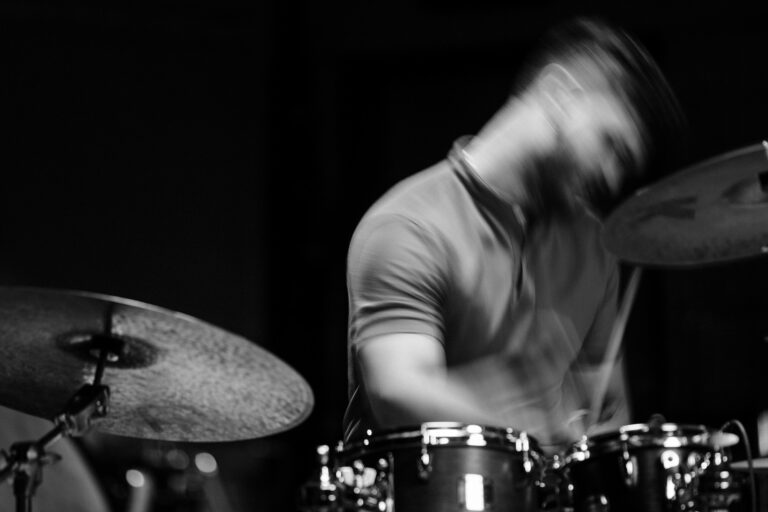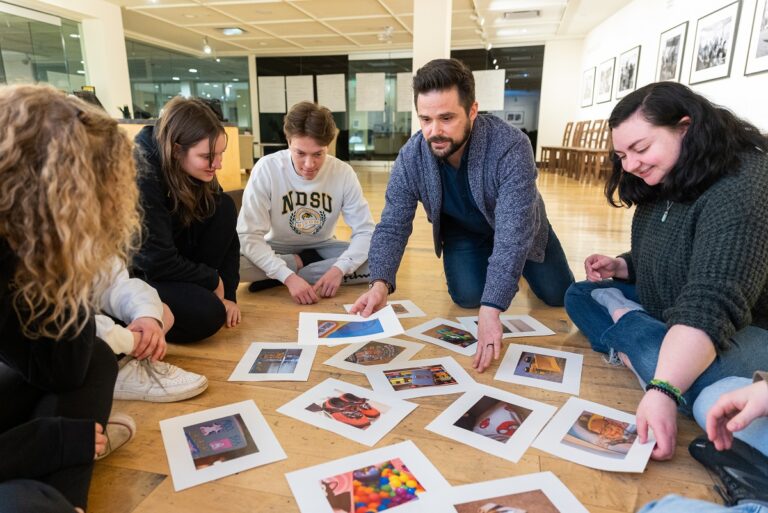Percussion performance major Alejandro López '25 is expanding the language of music at NDSU.
Read MoreThe Man Who Built a Home for Heritage at NDSU
Michael Miller has dedicated his NDSU career to preserving the stories, heritage, and culture of the Germans from Russia.
Story by Micaela Gerhardt | Photo by Ann Arbor Miller | March 21, 2023
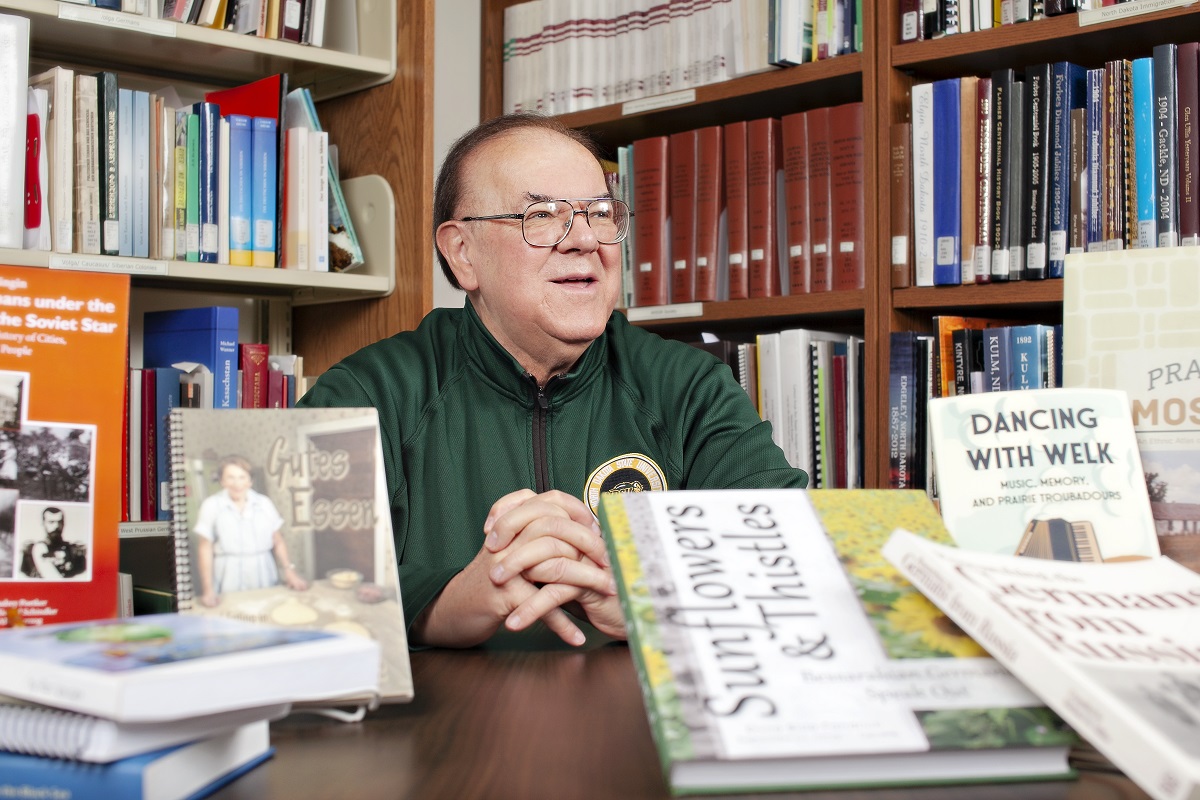
Michael Miller grew up in Strasburg, North Dakota, with parents who were both first-generation Germans from Russia born on American soil. He and his five older siblings spoke a Black Sea dialect of German as often as they spoke English; ate German-Russian foods, like kase knoephla and vegetable borscht; and continuing in the religious traditions of their ancestors, regularly attended mass at Sts. Peter & Paul Catholic Church.
Michael, who helped establish NDSU’s Germans from Russia Heritage Collection (GRHC) in 1978 and directed the program until his retirement in December 2022, knows the facts of his German-Russian upbringing and heritage. His mother’s parents, the Baumgartners, were Black Sea Germans from Russia who immigrated to Strasburg in 1889. His father’s parents, the Millers (Müller), were Bessarabian Germans from Russia who immigrated just five years later, in 1894. Both sides of his family left their respective homelands due to unrest in southern Russia and changes in the government, which included required military service for men. But unfortunately, he doesn’t know many stories about his ancestors’ daily lives or experiences because they weren’t shared.
“In the case of my parents, it’s a good example of, how much did they ask of their ancestors, of their parents? What do they remember? They never asked that much, so they never passed that down,” Michael said. “I think it shows the importance of doing oral interviews and documenting your living ancestors — your elders, your parents, your grandparents. It leaves a legacy for the family for today and for future generations.”
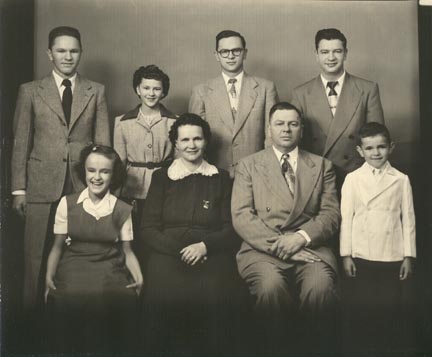
Around 30% to 40% of North Dakotans, like Michael, have German-Russian ancestry — a significant portion of the state’s population. When Michael was growing up, German-Russian dialects thrived in communities across the state, but now, mere decades later, the language has begun to disappear. Today, young people in North Dakota are not likely to grow up speaking German at home or learning it in their K-12 schools. The distance grows between those Germans from Russia who first settled in North Dakota and their modern-day descendants. Without documentation of the language, heritage, and culture, what will future generations remember about their ancestors?
This is a question Michael, and some of his peers at NDSU, began asking decades ago. For Michael, the seeds that sprouted into his passion for preserving German-Russian history were planted at a very young age. Many of his grade-school teachers were School Sisters of Notre Dame, and when they came to Strasburg to teach, they noticed the strong presence of German-Russian dialects, foods, and traditions in the community. One teacher, Sister Josepha, who was a German native, would say from time to time that someone should really study the German-Russian people. This gave Michael the inkling — which would resurface in later years with more urgency — that his German-Russian heritage was important, something worth sharing.
In the fall of 1967, Michael began his career as a librarian at NDSU. He worked at the circulation desk, then in reference, where he crossed paths with NDSU professors and archivists, some of whom shared his German-Russian ancestry. Over time, in conversations, a single thread emerged: the idea of establishing a collection that would preserve and document the Germans from Russia ethnic group. What better place for a collection dedicated to the study and enrichment of regional people than a land-grant university, they asked.
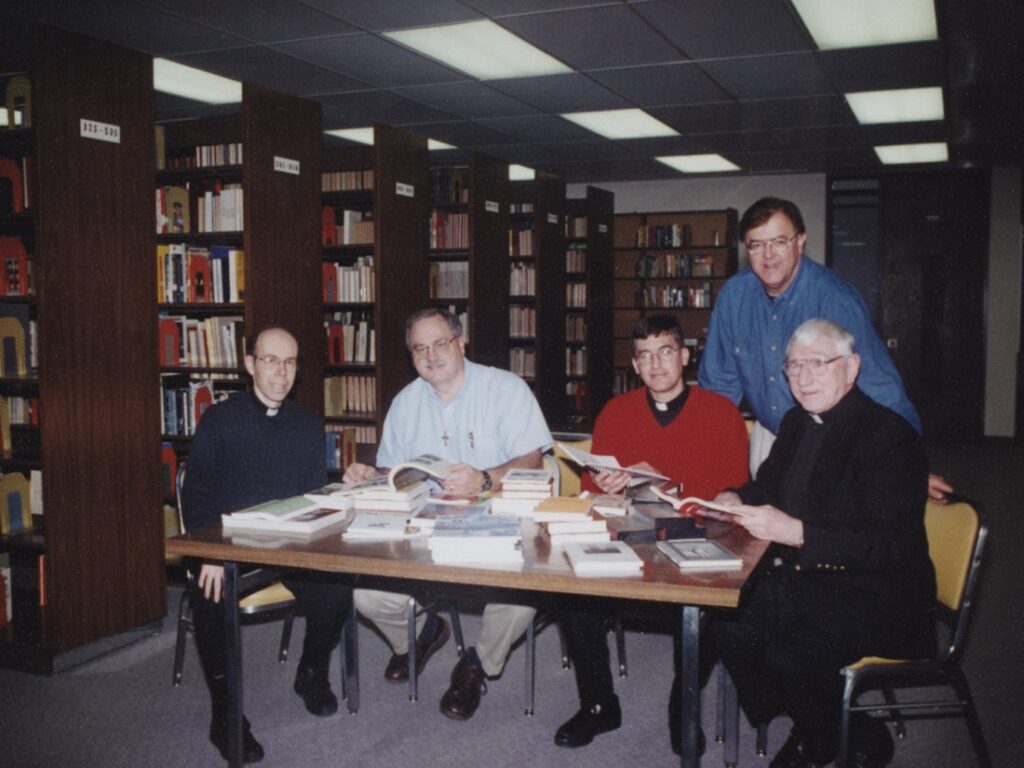
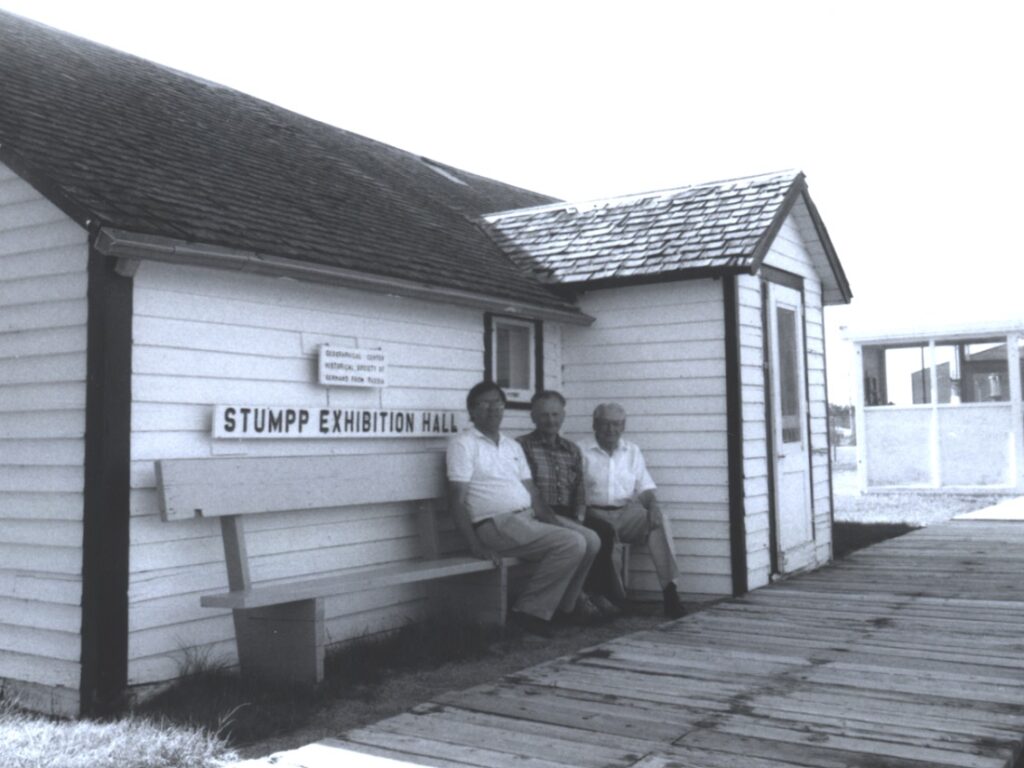
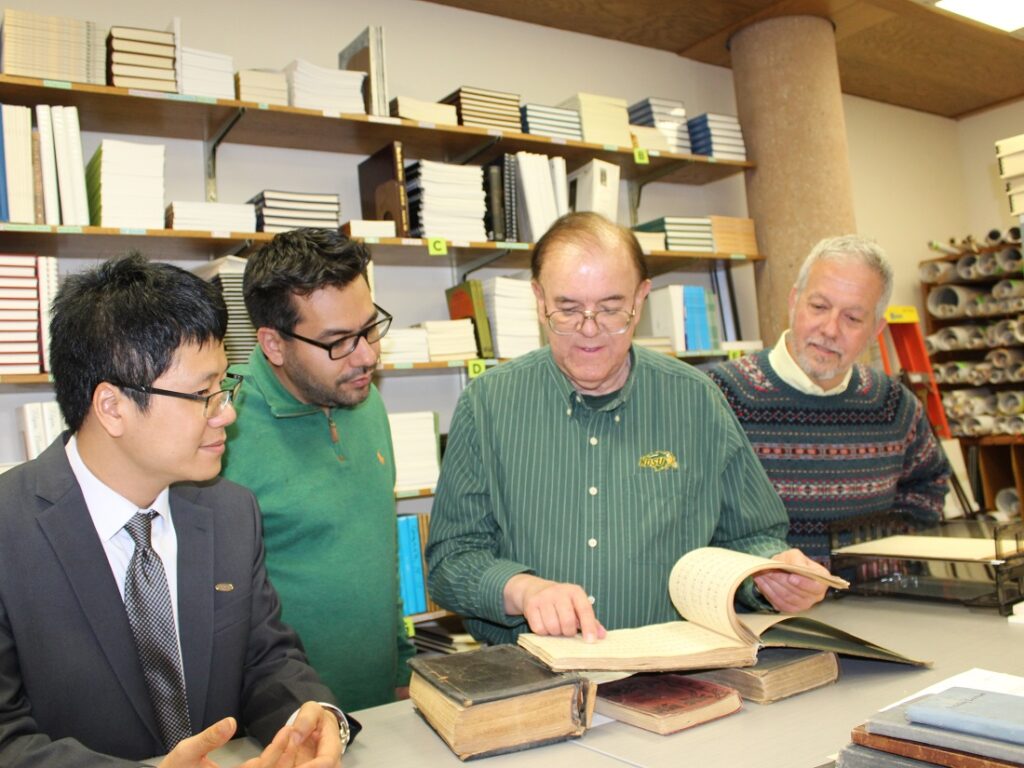
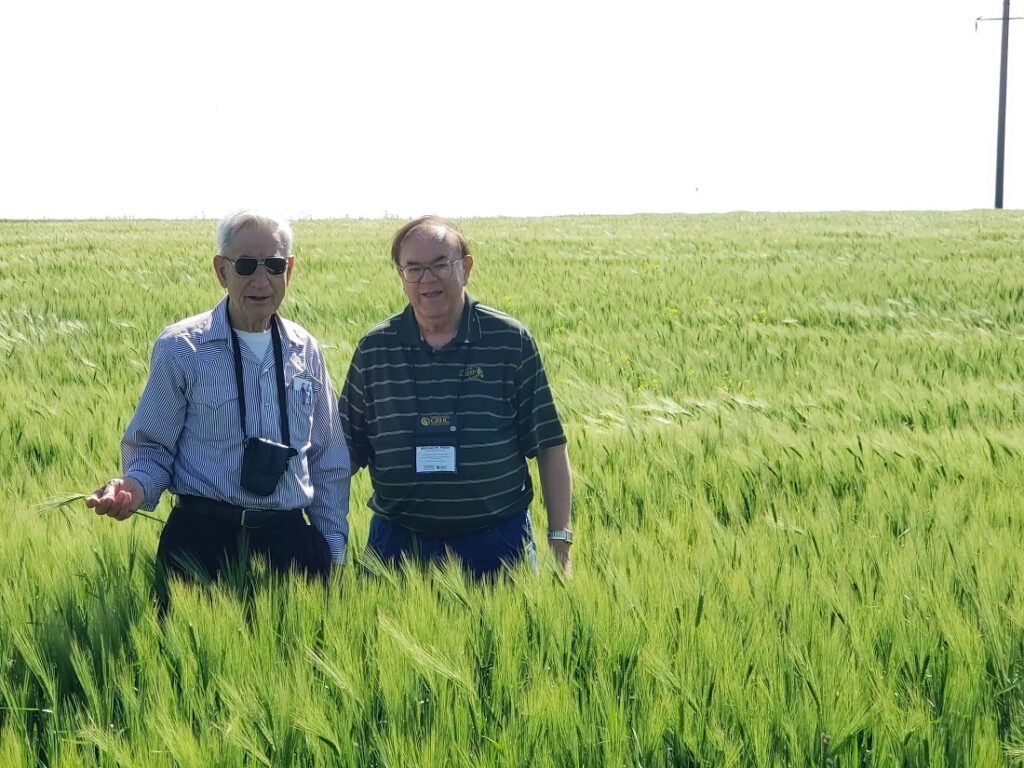
Together, with Reverend William “Bill” Sherman, a sociology professor at NDSU who photographed German-Russian architecture, and Armand Bauer, a German-Russian soil scientist at NDSU, Michael approached then-president L.D. Loftsgard about establishing the GRHC. Loftsgard “gave it the green light,” and the collection was formally established in 1978. Michael was named as its director, a title he held proudly for 44 years.
Among the first items in the collection were newspapers such as the Dakota Freie Presse, a popular German-language newspaper printed in Dakota Territory that focused on German-Russian settlers in the U.S. and abroad, and the Nord-Dakota Herold, a newspaper for the Catholic community of Germans from Russia, printed in Dickinson, North Dakota.
As the collection grew, it evolved to offer more services and stories. In 1996, Michael began writing a monthly column, “In Touch with Prairie Living,” that highlights stories and memories of the Germans from Russia, which he still distributes to more than 5,000 readers via email Listserv and to North Dakota and South Dakota weekly newspapers. From 1996 to 2019, he led the “Journey to the Homeland Tours” for people with German-Russian ancestry or interest in the ethnic group to visit ancestral villages near Odessa, Ukraine.
Today, the GRHC is home to numerous valuable archival research collections, scholarly books, cookbooks, oral histories, letters, photographs, traveling exhibits, and other historical materials. It also features 10 award-winning documentaries produced in partnership with Prairie Public that chronicle the heritage and culture of the Germans from Russia. The GRHC often welcomes scholars who want to conduct research on the Germans from Russia as well as families of German-Russian descent who want to explore their genealogy.
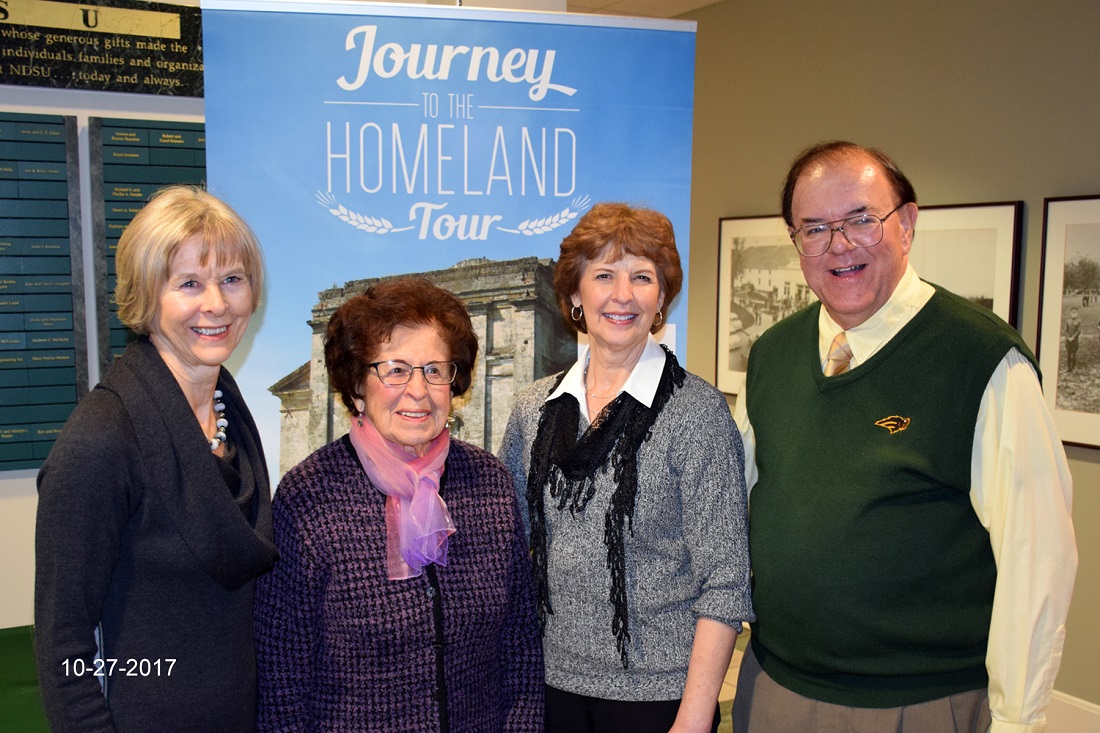
“As each decade goes by, we lose the people who have that history,” Julie Opp Burgum ’75, ’02, an alumna with German-Russian heritage who has invested in the GRHC, said. “What Michael has done is capture the history of those people and document it through videos, books, and interviews. As a child growing up in the Napoleon/Streeter area in the ’50s and ’60s, I see the value of the work done by the GRHC to preserve our history.”
In 2019, Michael decided to give back and invest in the collection he has spent most of his life building from the ground up. Using his IRA, he established an endowment through the NDSU Foundation to benefit the GRHC.
“The Germans from Russia Heritage Collection is considered, today, one of the most comprehensive collections on this subject anywhere in the world,” Michael said. “I want to be sure that it’s perpetual so that future generations of students who come to NDSU, their parents, researchers, and families who come to visit for genealogy and other research have a permanent home for it, so that it continues to grow and develop a greater audience regionally, nationally, and internationally — I think that’s important.”
Michael looks with pride and optimism toward the future of the GRHC. Jeremy Kopp ’11, GRHC interim director, says that the GRHC currently has many projects, events, and ideas in the works that will continue to benefit the University and community.
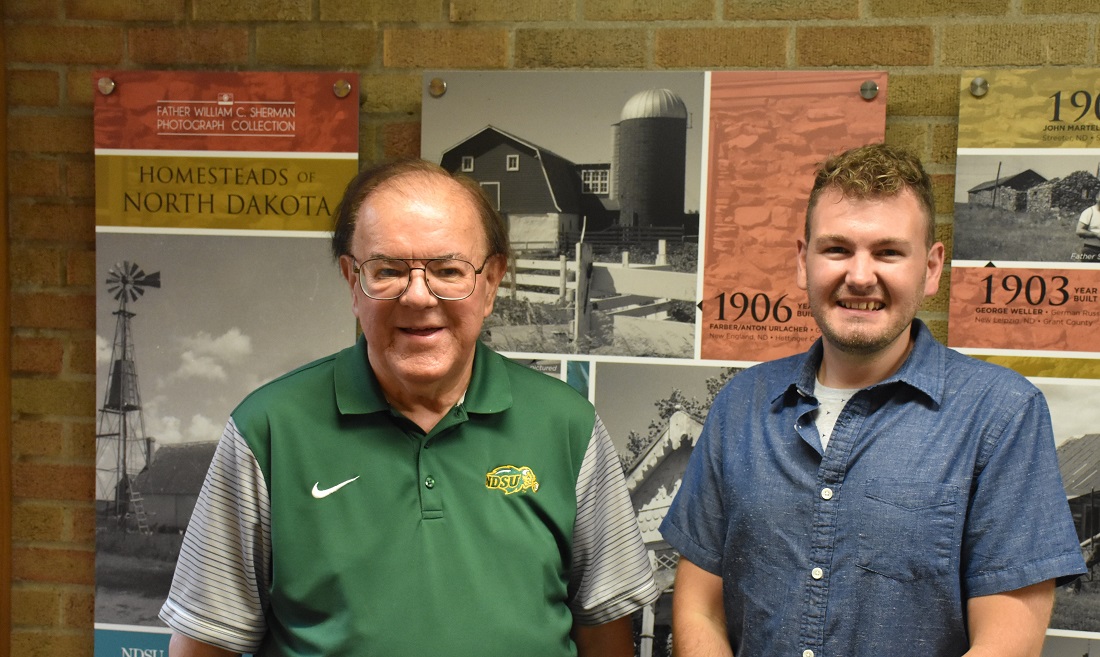
“It’s very important for people to know that the work of the GRHC will continue perpetually. Michael’s endowment ensures that — he is confident in the future of the GRHC. I share that confidence and look forward to what is next,” Jeremy, who has been at the GRHC for more than a decade, said. “I hope to honor Michael by continuing his legacy of building relationships with individuals, organizations, and communities as I work to share the stories of the Germans from Russia and fulfill the mission of the GRHC.”
Although Michael has retired, he plans to remain involved with the GRHC. He said it has been easy to remain passionate about the collection for more than four decades — and even into retirement — because he has always been part of a community who has expressed interest and excitement in the work.
Earlier in his career, he never would have predicted how much of his life he would dedicate to the collection, or how much the collection itself would progress. As he reflects on the GRHC and its growth, he also remembers his family and the mentors who shaped the course of his life’s work.
“My two aunts who were both educators would look and say, ‘You’ve helped preserve our heritage,’ and my parents, too, but especially my aunts because they were very interested in their history,” Michael said, “and I think some of my Catholic school nuns would say, ‘You’ve helped to do what we had hoped.'”
Learn more about Germans from Russia food culture and explore recipes from the Germans from Russia Heritage Collection in Cooking to Reconnect.
Share This Story
Related Stories
Devising a Show: A Unique Theater Experience Mirroring Life
NDSU assistant professor Marc Devine is collaborating with student-actors to bring stories from local foster parents to audiences in "Home."
Read More